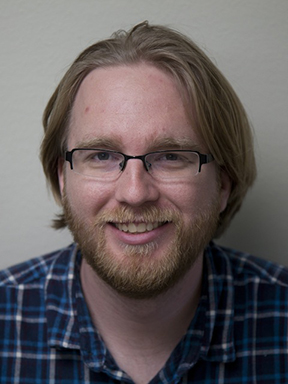 Bill Hamilton, a doctoral student in the Department of Computer Science and Engineering at Texas A&M University, was awarded the 2018 Association of Former Students' Distinguished Graduate Student Award for Excellence in Research.
Bill Hamilton, a doctoral student in the Department of Computer Science and Engineering at Texas A&M University, was awarded the 2018 Association of Former Students' Distinguished Graduate Student Award for Excellence in Research.Hamilton’s research focuses on how new live media forms can support participation and interaction in shared experiences. He studies how people engage in online communities using media forms such as Facebook, Twitter, Reddit, YouTube, Instagram and SnapChat, as well as how utilizing live media can positively impact that space.
In collaboration with Microsoft Research, Hamilton designed, developed and evaluated Rivulet, a mobile streaming platform for participating in multistream live experiences. Hamilton also designed the cloud-based web application, LiveMâché, that implements a new form of participatory live media known as Collaborative Live Media Curation (CLMC).
“CLMC enables participants to collaboratively collect, broadcast and compose media to create participatory contexts for online learning activities,” Hamilton said. “We have deployed LiveMâché to support online learning experiences in several courses here at Texas A&M, as well as on the massive open online course platform edX.”
Hamilton’s current research is rooted in his early research of engagement on the Twitch video game live streaming platform. In his widely cited publication of this work, Hamilton discussed the motivations of participants, the practices of streamers and viewers, and the implications for the design of live streaming media.
“My long-term research goal is to support people through novel media forms that afford new opportunities and ways to participate in online communities and society at large,” he said.
Hamilton is advised by computer science and engineering professor Dr. Andruid Kerne.
“I am glad to receive this award and the recognition that it brings for the Interface Ecology Lab and the Department of Computer Science and Engineering,” Hamilton said. “Without the support of my advisor and colleagues, my work would not have been possible. This award will support my continued research, which I hope will affect positive change in the world and reflect well on Texas A&M.”